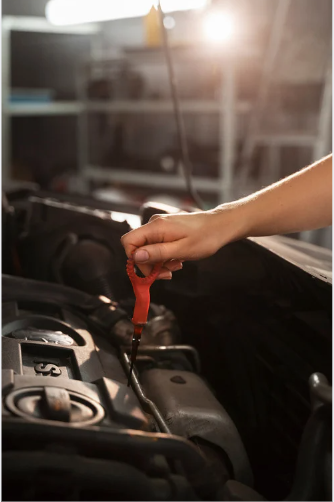Blogs
Avoid These Common Lubrication Mistakes
Engine oil maintenance is critical for preserving the health and performance of your vehicle’s engine. However, several common mistakes can hinder engine oil effectiveness and compromise overall automotive performance. Let’s explore these pitfalls and discover how to sidestep them for peak automotive operation.
Neglecting Regular Oil Changes:
Regular oil changes are essential for preventing engine wear and maintaining optimal lubrication. Failure to change the oil at recommended intervals can lead to increased friction, engine overheating, and accelerated wear of internal components. Follow your vehicle manufacturer’s guidelines for oil change intervals based on mileage or time, and adhere to them diligently.
Choosing the correct viscosity and grade of oil is crucial for engine protection and performance. Engine oil viscosity affects flow characteristics at different temperatures, with thinner oils providing better cold-start performance and thicker oils offering enhanced protection at high temperatures. Refer to your vehicle manual to determine the recommended oil viscosity and grade for your specific engine type and operating conditions.

Regular monitoring of oil level and quality is essential for detecting potential issues early on. Low oil levels can result in insufficient lubrication, increased friction, and engine damage, while degraded or contaminated oil may lose its ability to protect engine components effectively. Check your vehicle’s oil level regularly using the dipstick and inspect the oil’s colour and consistency. If the oil appears dark, gritty, or has a burnt odour, it’s time for an oil change.
The oil filter plays a crucial role in engine oil maintenance by trapping contaminants and preventing them from circulating through the engine. Neglecting to replace the oil filter during oil changes can compromise filtration efficiency, allowing contaminants to accumulate in the engine and cause damage. Always replace the oil filter according to the manufacturer’s recommendations or, at the very least, during each oil change to ensure optimal engine protection.
By avoiding these common engine oil maintenance mistakes and adopting a proactive approach to oil care, you can help ensure the longevity, efficiency, and reliability of your vehicle’s engine. Remember, proper engine oil maintenance is key to keeping your vehicle running smoothly and optimizing its performance for the long haul.
